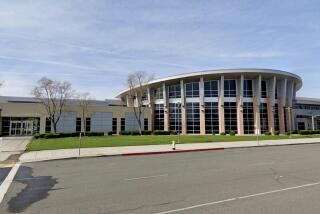A Full Measure of Heroism
- Share via
Day-to-day life would be immeasurably harder and perhaps even unendurable if we weren’t able to take for granted a lot of things, among them that the crews of the airliners we fly know their business. The safe end of an air journey seldom brings even a passing thought of appreciation for the skills of those who flew the plane. Only during and after those mercifully rare times when emergencies occur and special and even extraordinary efforts are called for are we apt to recall how often and with what implicit and absolute trust we temporarily place our lives into the hands of strangers.
When United Air Lines Flight 232 took off from Denver on the afternoon of July 19, Alfred C. Haynes, Dudley Dvoark, William R. Records and Dennis Fitch were strangers to virtually all the passengers aboard. A few hours later, for many of them, the four men were their saviors.
Haynes was the pilot, Records was the first officer, Dvorak the second officer, and Fitch was an off-duty United pilot who lent two strong hands when their DC-10 suffered an engine explosion and loss of hydraulic controls. Somehow, working together, they were able to steer the crippled plane to a crash landing. The crash took the lives of 111 people. But, seemingly against all odds, 185 of those aboard survived. They lived not because Haynes and his colleagues followed the procedures for dealing with such an emergency--no such instructions exist--but because, faced with a crisis they stayed calm, they called on their extensive experience, they improvised. Haynes said at a press conference a week after the crash that there were no heroes in the cockpit. He was wrong. Cool professional competence under terrifying pressure is as good a definition of heroism that we know of. There was a lot of heroism aboard UAL Flight 232. Because there was, 185 people beat some pretty long odds and are alive today.
More to Read
Sign up for The Wild
We’ll help you find the best places to hike, bike and run, as well as the perfect silent spots for meditation and yoga.
You may occasionally receive promotional content from the Los Angeles Times.





